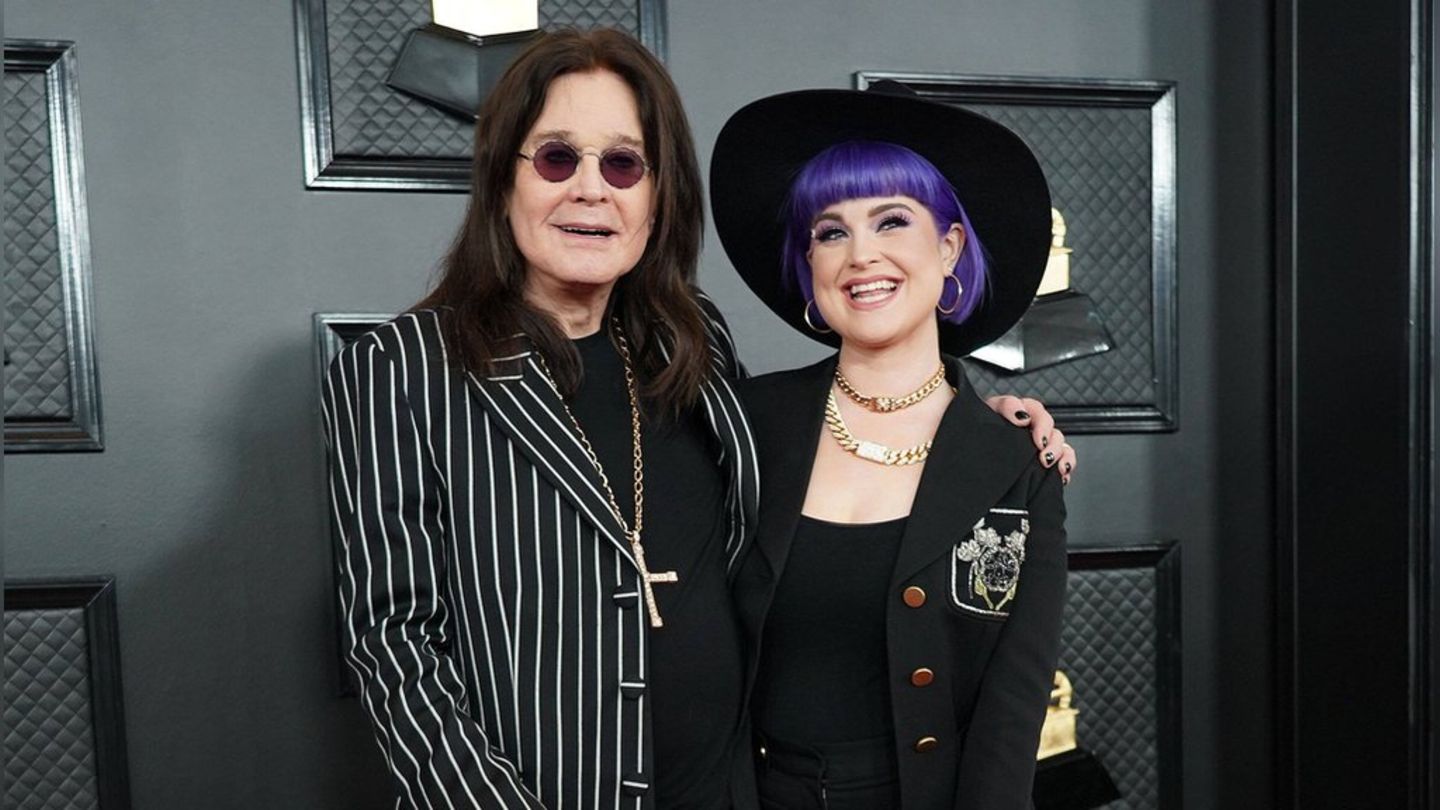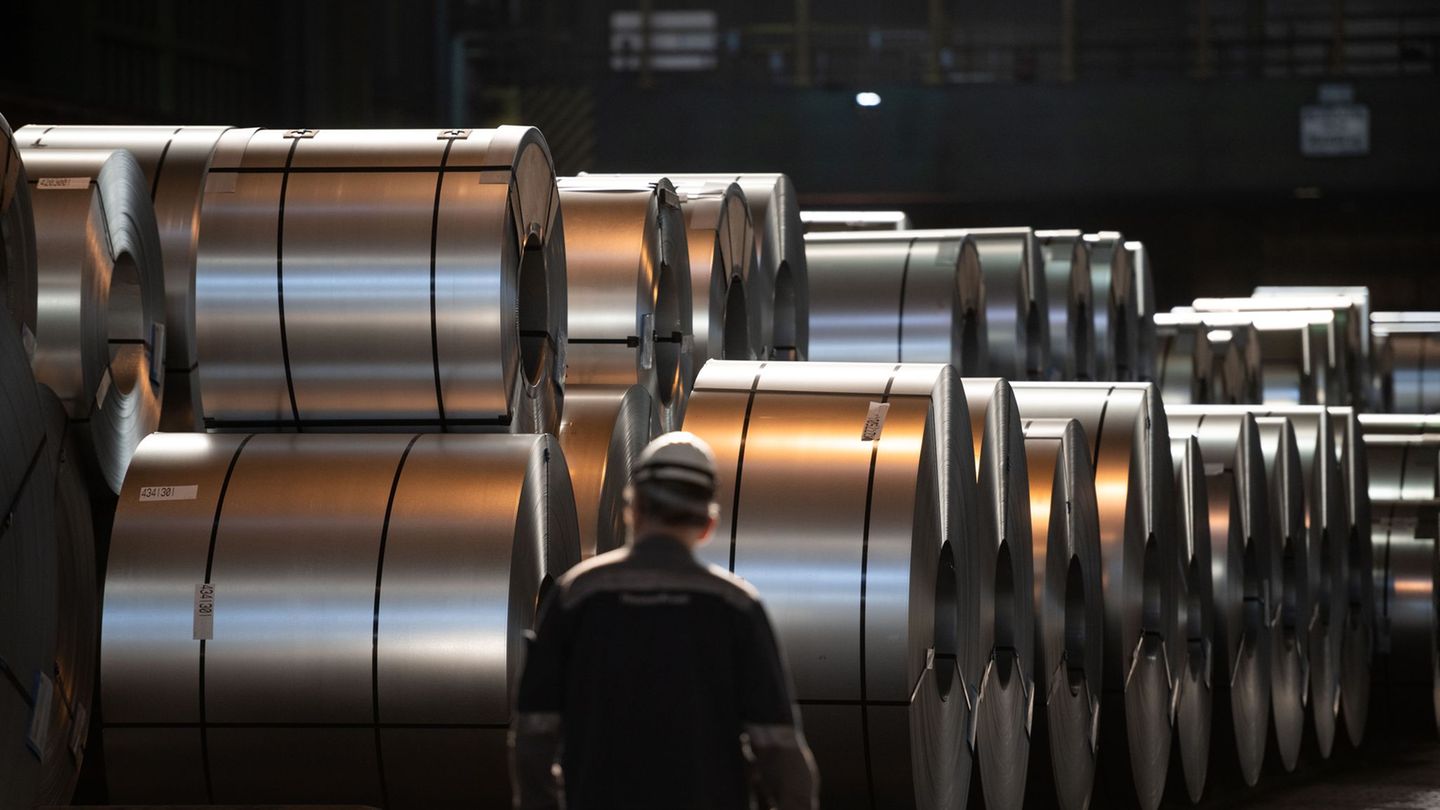No journalists on the plane, no press conference, one-to-one conversation with Biden. There is something mysterious about the Chancellor’s second visit to the White House. There is a message nonetheless.
The glimpse the public gets of this important meeting of two of the most powerful men in the world lasts four minutes. Left Chancellor Olaf Scholz, right US President Joe Biden. Both in rustic armchairs in front of the fireplace in the Oval Office, the President’s study in the White House.
The message to the outside world is simple: we agree. Both in support of Ukraine attacked by Russia, but also otherwise.
“I really appreciate the very good cooperation between the two of us,” says Scholz to Biden in pretty good English. The praise of the US President for his guest from Germany is much more effusive. “I want to thank you for your strong and consistent leadership. I mean that sincerely. It’s made a huge difference,” Biden said. Germany has provided crucial military and moral assistance to Ukraine. “I would say that apart from the military support, the moral support you gave to the Ukrainians was also of great importance. Yes, it was of great importance.”
No press conference – no journalists on the plane
Then the curtain falls on the public. The two continue to talk privately, without advisors and recorders. A press conference afterwards, which there is actually always at such meetings, was not planned from the outset. That’s why Scholz, unlike usual, didn’t bring any journalists with him from Berlin. Otherwise it’s around 25. The brand-new government plane “Konrad Adenauer” stayed pretty empty on the flight to Washington.
So there is something mysterious about this trip. Even before his departure, Scholz says that video conferences and telephone calls are not the same as personal conversations. Hence the long flight for this one official appointment in Washington. There is a lot to talk about. How is the supply of arms and ammunition to Ukraine going? How do you deal with the increasing demands for negotiations? What security guarantees can be given to Ukraine in the long term? And how to sanction China if it supplies arms to Russia?
Biden ignored Berlin during his trip to Europe
Actually, the conversation could have taken place last week when Biden visited Ukraine and Poland. However, the US President only made a short stopover at the Ramstein Air Force Base in Rhineland-Palatinate. Scholz has to wait for Biden’s first visit to Berlin since he was sworn in a good two years ago.
Conversely, the chancellor is now in Washington for the second time in the 15 months since he took office. After arriving, he emphasizes on Friday that relations between Germany and the United States are better than they have been for many years. “I think that’s important in these times when we are challenged by Russia’s terrible war of aggression against Ukraine,” he says. The basis for this is trust, which arises from talking to each other again and again. “That’s exactly what we do.”
Brothers in spirit: Unspectacular, level-headed, result-oriented
For Scholz, it’s not just a visit to his most powerful ally, but also to a political friend whom he sees as a brother in spirit. When Scholz talks about Biden, he almost goes into raptures. There is hardly anyone on the international stage whose political style suits him as well as the 80-year-old US President: unspectacular, but also calm, level-headed and, above all, result-oriented.
In dealing with the Russian war of aggression against Ukraine, Biden has become something of a leading figure for Scholz. When the chancellor says he doesn’t want to go it alone in supplying arms, what he means above all is: not without the Americans. This was the case with the delivery of multiple rocket launchers, with the Patriot air defense systems and with the armored personnel carriers. With the main battle tanks, however, things did not go so smoothly and amicably.
Message from Biden adviser before visit
At the end of January, Scholz and Biden announced almost synchronously that Germany would deliver Leopard 2 tanks and the USA their Abrams to Ukraine. The US President also thanked the Chancellor for his “strong leadership” and “unwavering commitment” to Ukraine. But even then there were reports that Scholz had made the delivery of the Abrams a condition of his Leopard commitment. The chancellor’s office denied that. Biden, whose defense ministry had previously classified the deployment of Abrams in Ukraine as impractical, asserted that he had not been “forced” to agree.
But shortly before the Chancellor’s visit to the White House, Biden’s national security adviser Jake Sullivan spoke up in a television interview with the surprising statement that such a tie had existed after all. In the interests of “alliance unity” and “to ensure Ukraine gets what it wants,” Biden agreed to the long-term supply of Abrams tanks — although they are not what Ukraine needs militarily at the moment.
The timing of Sullivan’s testimony and the chosen format give the impression that the US government wanted to send a message to the addressee Scholz. On Friday in the Oval Office, the two looked as if everything was fine again, at least to the outside world. Is that really the case? Not clear.
Conflict issue US investment program
There is another issue that currently harbors the potential for conflict between the USA and Germany. Biden launched a multi-billion dollar US investment program last summer. It provides for investments in climate protection, but ties many subsidies and tax credits to companies using US products or producing them themselves in the USA. The Inflation Reduction Act (IRA) is an important domestic political success for the US President.
In Berlin and Europe, however, Biden’s “Made in America” approach is not so well received. The concern about competitive disadvantages is great. In a government statement at the beginning of February, Scholz called for the USA to make concessions and warned of a subsidy race. Economics Minister Robert Habeck (Greens) and his French colleague Bruno Le Maire campaigned in Washington at about the same time for a Europe-friendly application of the law, but returned without any concrete commitments.
Merz does not like the confidentiality
The opposition in Berlin is piqued by the confidentiality of this trip. “None of us in Parliament and in the German public knows the reason for this trip,” criticized CDU leader Friedrich Merz in an interview with the editorial network Germany (Friday). Will there ever be enlightenment? Not clear.
Source: Stern
I have been working in the news industry for over 6 years, first as a reporter and now as an editor. I have covered politics extensively, and my work has appeared in major newspapers and online news outlets around the world. In addition to my writing, I also contribute regularly to 24 Hours World.




